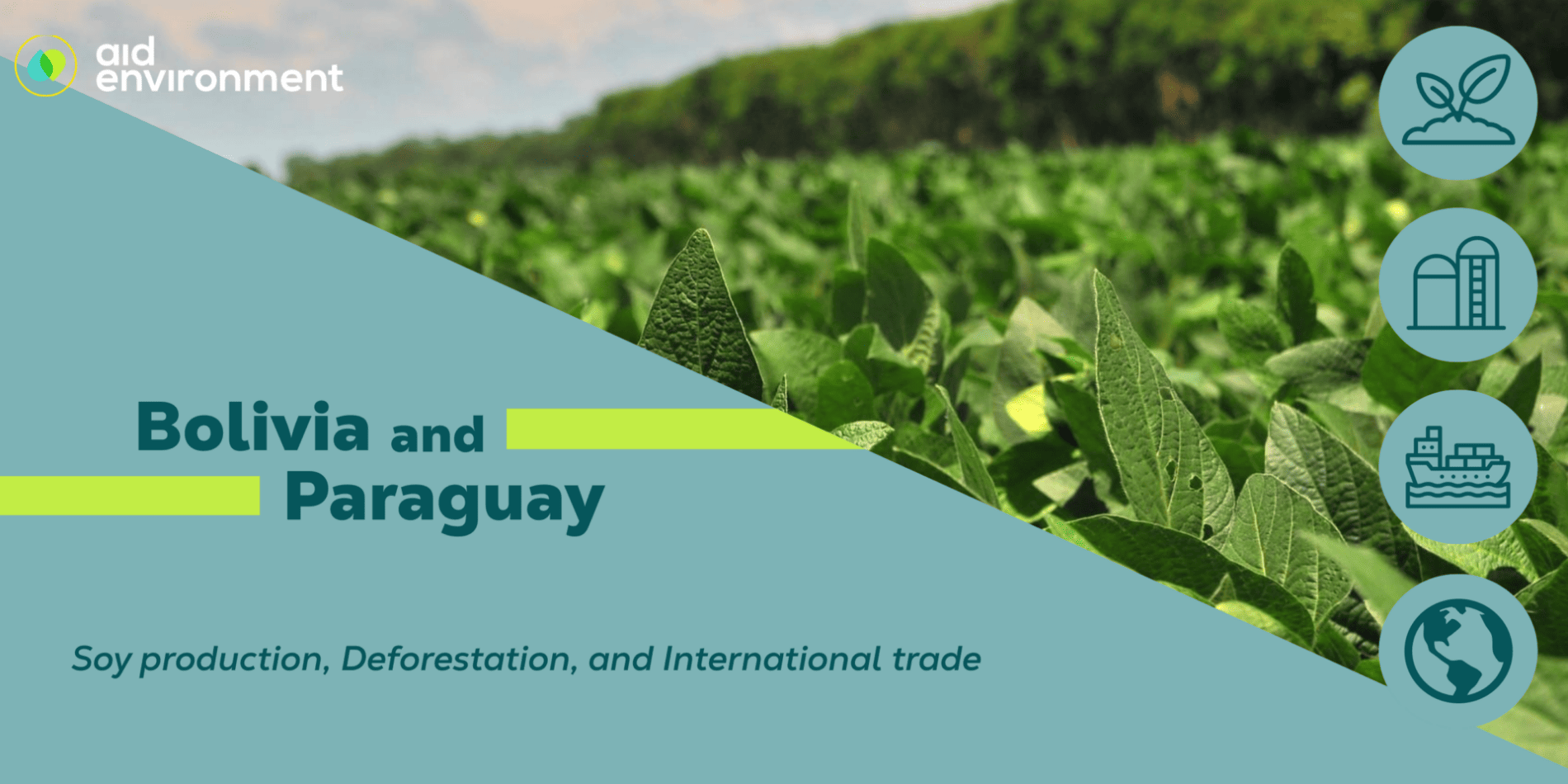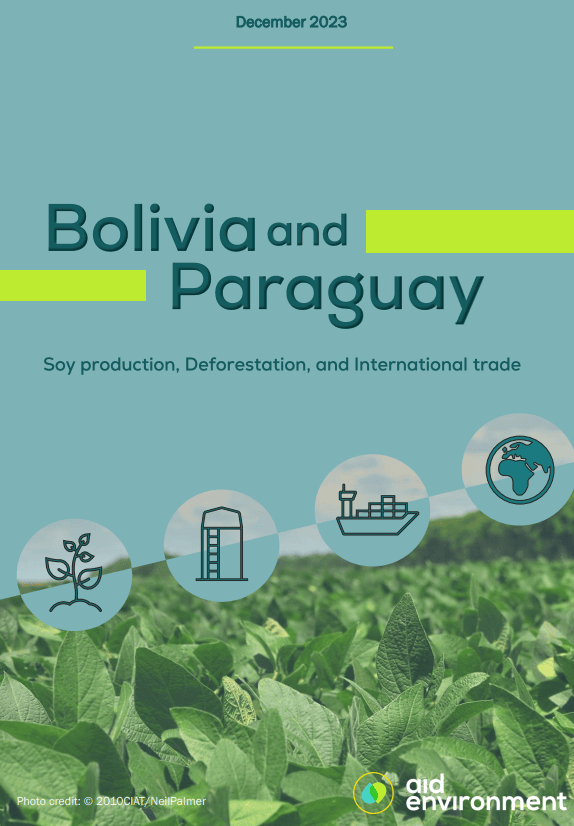Supply chain & trade analysis series: “Bolivia and Paraguay: Soy production, Deforestation, and International trade”


AidEnvironment is kickstarting December with the launch of a new supply chain & trade analysis series, shedding light on deforestation trends linked to commodity production and international trade in new geographies.
In this first report, focused on Bolivia and Paraguay, we analyze the dynamics of soy production and trade in these two countries and how they are linked to land use change, forest cover loss and degradation of important ecosystems such as El Chaco. Even though the EU, a large consumer market, did not directly import relevant volumes of soy and its derivatives from Bolivia and Paraguay in recent years, soy produced in these countries might still reach it via indirect trade links with Argentina, which is importing increasing volumes of soybeans from neighbouring countries while the EU also has in Argentina a major importing partner of soy products. Ultimately, processed soy products from Argentina might be linked to deforestation due to the origin of the soybeans on which they are based, and this might create hurdles for operators and traders who need to comply with the requirements of the EU Deforestation Regulation. One of the highlights of the report is therefore that a narrow focus on direct soy supplies to large consumer markets could prevent a system-wide change towards deforestation-free supply chains in the region, for which it is paramount to enhance traceability and transparency in soy supply chains to guarantee the protection of forests in Bolivia and Paraguay.
The new project to which this report series is linked aims to strengthen evidence-based research and analysis linking soft commodity imports by the EU to deforestation, fires, and human rights violations in producing countries. It builds on the development of two types of reports and analyses, one of which has led to the new series launched.
Our research seeks to...
We cover relevant geographies and provide an overview of trading flows, commodity production, deforestation monitoring, supply chain traceability and transparency challenges, and opportunities linked to different commodities, such as cattle (beef and leather), soy, coffee, cocoa, palm oil, rubber, timber and pulp and paper.
In doing so we aim to:
· Create awareness on deforestation trends linked to global commodity supply chains and provide information on progress and remaining gaps towards deforestation-free supply chains;
· Make actionable data available to local communities, media vehicles, and civil society organisations which can use it to (1) hold global traders of agriculture commodities accountable, (2) influence other actors, such as companies and governments, to increase transparency in commodity supply chains, and (3) denounce and deter non-compliance and/or damaging practices;
· Motivate companies to enforce zero-deforestation sourcing and production towards the protection of native/primary forests and natural ecosystems.
AidEnvironment implements this project with the support of the European Climate Foundation. To learn more about it and AidEnvironment’s work on deforestation monitoring and trade analysis, visit our dedicated project page.
